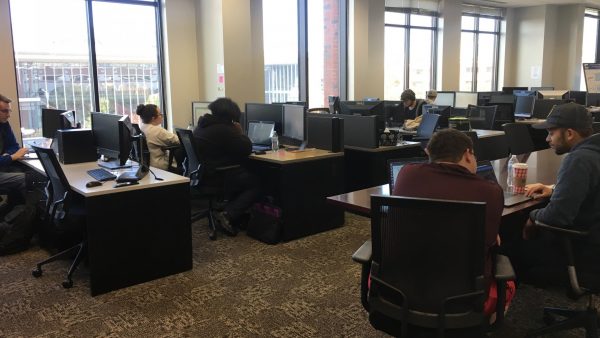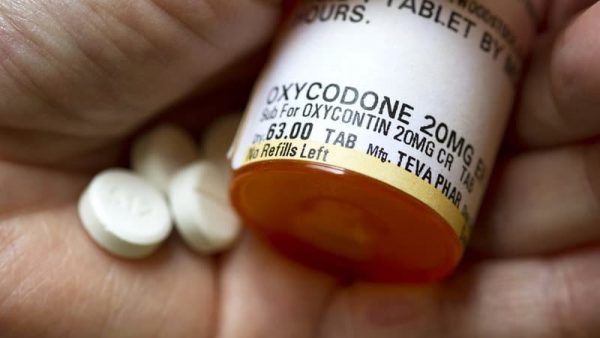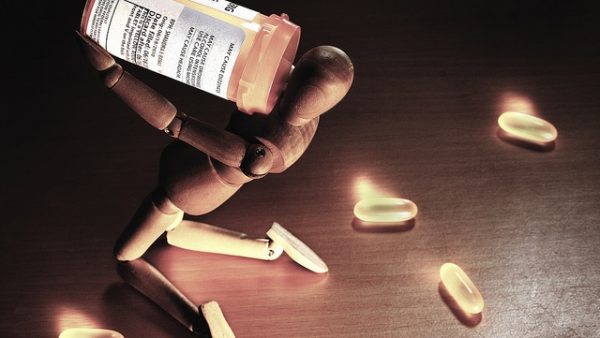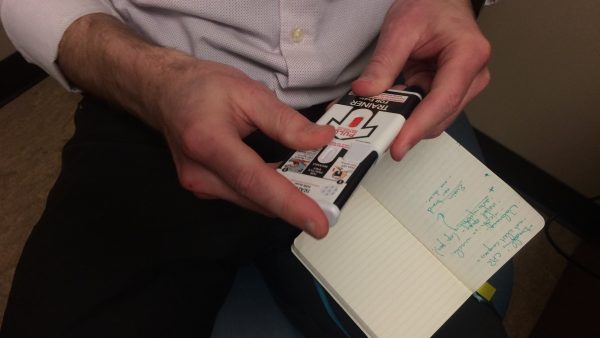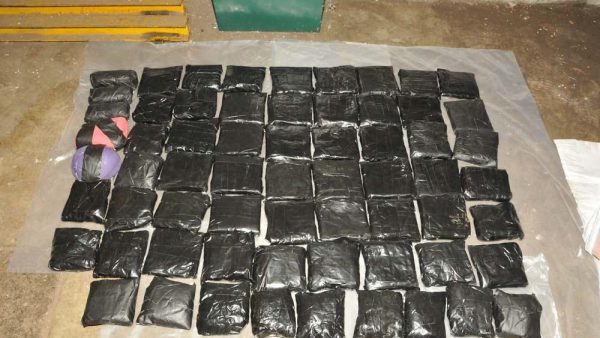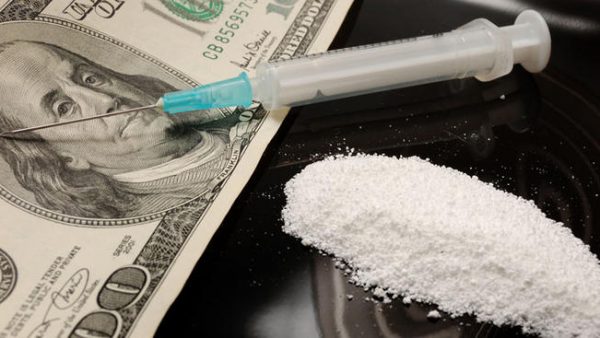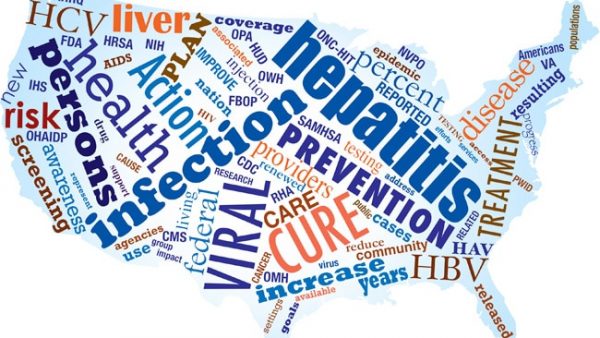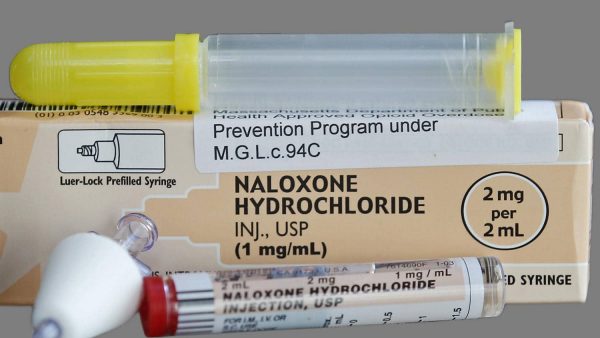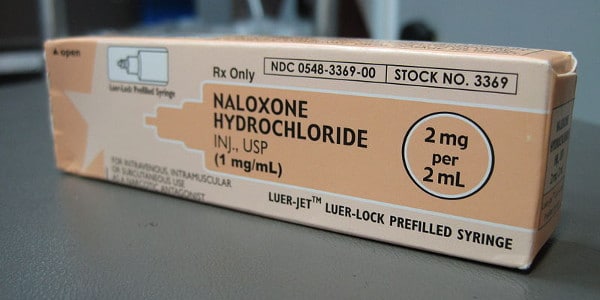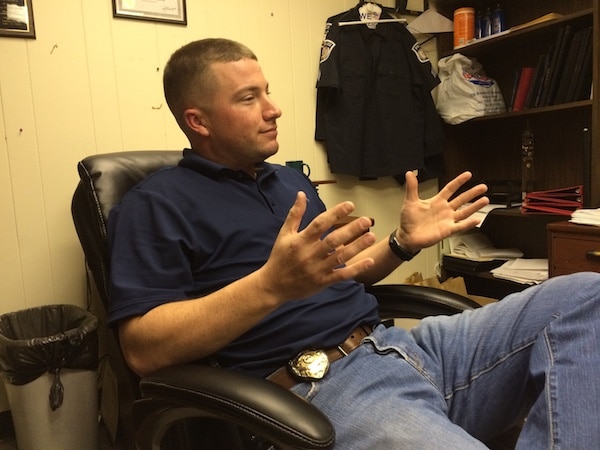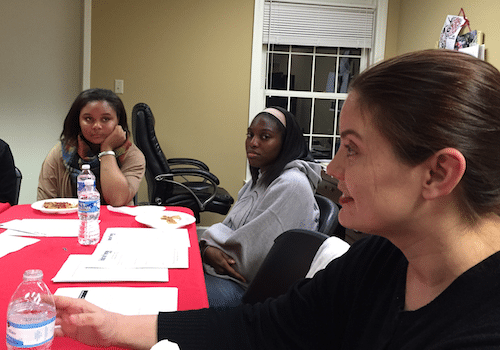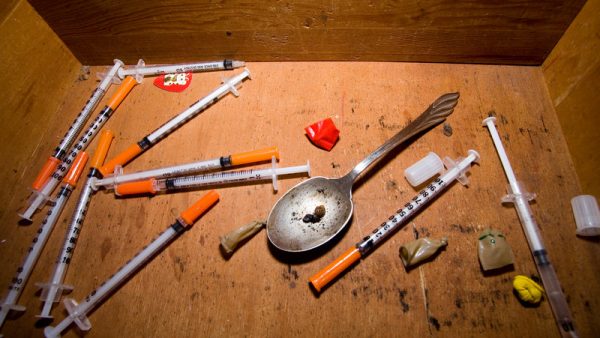Heroin
UAB Partners with Facebook to Fight Online Drug Sales
Computer forensics researchers at the University of Alabama at Birmingham recently partnered with Facebook on an initiative that could ultimately curb drug sales and drug-seeking behavior on the platform.
Amid Rising Opioid Deaths, Alabama Cracks Down on Treatment Centers
Alabama and the nation are in the midst of an opioid epidemic, with deaths from prescription pain medication and heroin overdoses on the rise. Yet, as the death toll increased, Alabama cracked down on opioid addiction treatment centers, specifically methadone clinics. Currently two companies are trying to open methadone clinics in Lee County, and they’re seeing stiff pushback from local officials. Al.com's Amy Yurkanin recently reported on the state's struggle with methadone clinics, and she tells WBHM’s Rachel Osier Lindley more.
Commentary: When it Comes to Opioids, Doctors Need to Focus on People, Not Pills
Opioids include pills like hydrocodone and morphine are often prescribed for pain. They also include drugs of abuse such as heroin. The Centers for Disease Control and Prevention reports that more than 18,000 people died from opioid overdoses in 2014. Public initiatives from the CDC and the White House have focused on how doctors prescribe opioid pills for pain. Last week the CDC released a guideline urging doctors to show greater care and caution when prescribing opioids.
In 2015, Prescription Opioid Overdoses Increased by 131 Percent
In Jefferson County, the number of people killed by prescription opioids more than doubled last year. That’s according to the Jefferson County Coroner/Medical Examiner's Office 2014 annual drug report, released Wednesday.
Naloxone Helps Stop Heroin Overdoses in Alabama, But Still Not Widely Used
In Jefferson County, heroin abuse rose dramatically in 2014. The county coroner attributed more than 140 deaths to heroin. Law enforcement and the state have been rushing to respond. Last year, the state legislature approved access to a heroin antidote: naloxone, more commonly known as narcan. If used properly, naloxone can reverse the effects of a heroin overdose. Public health officials in Alabama are trying raise awareness and get the potentially life-saving drug to the people who need it most.
High Costs of Heroin Addiction Treatment Put Significant Strain on Families
Heroin abuse continues to rise nationally and in Alabama, leaving more people searching for ways to kick addiction. Families ask friends, professionals and scour the Internet looking for the best, and most affordable, treatment for their loved one. But the financial burdens can be crippling, sometimes thousands upon thousands of dollars.
The Low Price and High Cost of Heroin
Heroin overdose deaths are on the rise nationally. In Jefferson County, deaths increased by more than 140 percent in 2014. The numbers were shocking: Heroin caused or contributed to 144 deaths in 2014. Area law enforcement responded by increasing efforts to get traffickers and drugs off the streets, especially in Birmingham.
As Heroin Use Rises, More Families Struggle With Loss And Addiction
Heroin use has exploded in Alabama, and heroin-related deaths more than doubled in Jefferson County last year. That means more and more relatives have to cope with the mistrust, deception and shame that come with addiction. Despite the stigma, parents and families are reaching out for help.
Uncovering Alabama’s Hidden Hepatitis C Problem
Injection drug use is on the rise around the country, feeding an increase in cases of the blood-borne liver disease Hepatitis C. The Centers for Disease control says that, nationally, Hepatitis C infections rose 150 percent in the last 3 years. But the spread of the disease in Alabama is hard to measure. Doctors and health care officials are trying new ways to determine the true spread of the disease here in Alabama -- doctors like Jim Galbraith, an emergency room physician at UAB.
UAB Program Expands Access to Heroin Overdose Drug
Police and public health leaders in Alabama are trying to deal with a spike in heroin use in recent years. Naloxone -- or narcan -- is a drug that, when administered correctly, can reverse the effects of a heroin overdose. A bill passed the Alabama Legislature this week that would allow first responders to give narcan to someone dying from an overdose. But some don't think the bill goes far enough. UAB researchers are working on a crowd-funded study that puts narcan directly in the hands of users' and family and friends.
Handling Heroin In The Courts
Heroin related deaths more than doubled last year in Jefferson county. All this week, WBHM has explored Alabama's heroin problem. With a rise in use of the drug, police report more heroin arrests, and judges say their dockets are filling up with cases. According to Birmingham's drug court, eight out of ten cases are for heroin. We conclude our series with a look at the courts. Ashley Cleek followed one addict into the criminal justice system to see what works and what doesn't.
Naloxone Access Bill
With heroin use increasing in Alabama the last few years, public health leaders are looking for ways to reduce heroin overdose deaths. Naloxone could be part of it. The drug, more commonly known as Narcan, can reverse the effects of a heroin overdose if administered to a user in time. It's not addictive nor does it produce a high. State Representative Allen Treadaway (R-Morris) refers to it as a miracle drug. Treadaway is also a Birmingham police captain and he's introduced HB 208 in the Alabama legislature to expand access to Naloxone.
How Law Enforcement Is Fighting The Heroin Problem
As heroin use increases in North Central Alabama, law enforcement is taking a hard look at how to stop the supply, and handle heroin dealers and users. But beyond arresting dealers, they're also often the first on the scene of heroin overdoses. Les Lovoy reports on how law enforcement officials are juggling drug enforcement and saving lives.
A Recovering Addict’s Story In Her Own Words
Elizabeth Drennen tells the story of how she became addicted to prescription pain medication and then heroin to Addiction Prevention Coalition student leaders
Preventing Addiction In Schools
In Part One of WBHM's five-part series, we heard about how and why heroin use is on the rise in Alabama. Now in Part Two, education reporter Dan Carsen looks at how some young people are trying to slow its spread in their schools. The story starts with a confession in a small office just outside downtown Birmingham.
Fighting Heroin Abuse and Overdose Deaths
Heroin use has exploded in Alabama, with heroin-related deaths more than doubling in Jefferson County last year. All this week, WBHM explores the heroin problem in our series Heroin in Alabama. We'll hear what schools, law enforcement, the courts, and others are doing to fight heroin abuse and curb overdose deaths. To start, a look at the scope of the problem and how we got to here.
Issues & Ales: Heroin in Alabama
Deaths from heroin overdose have increased dramatically in Alabama, doubling in Jefferson County alone last year. Heroin is cheaper than ever, and more and more people who are addicted to prescription painkillers are making the switch, tearing families and communities apart. Why is heroin usage on the rise and what can law enforcement, public health officials, families, parents, and teachers do to combat the growing epidemic? Public Radio WBHM 90.3 FM will explore this topic at "Issues & Ales: Heroin in Alabama," Tuesday, March 24, from 5:30 to 8 p.m. at WorkPlay, 500 23rd St. South, Birmingham.
Recovering Heroin Addict Brad Blount On A Dark Time, And How He Escaped It
Heroin use is on the rise in Alabama. And contrary to old stereotypes, it doesn't respect race, class, or neighborhood boundaries. Brad Blount of Vestavia Hills is proof. He's from a solid family in that well-heeled suburb, but the 24-year-old tells WBHM's Dan Carsen that despite it all, his life took a dark turn.
Interview: U.S. Attorney Joyce White Vance on Alabama’s Heroin Problem
Heroin use is on the rise across the country, including Alabama. Since 2012, heroin overdoses have killed more than 150 people in Birmingham and surrounding suburbs. And that number continues to rise. A community summit Tuesday at UAB examines the numerous complicated issues surrounding heroin addiction and abuse. For more on the growing heroin problem in Northern Alabama, Rachel Osier Lindley spoke with U.S. Attorney Joyce White Vance. Vance discusses the path to heroin addiction and law enforcement's efforts to stop the drug from spreading.

